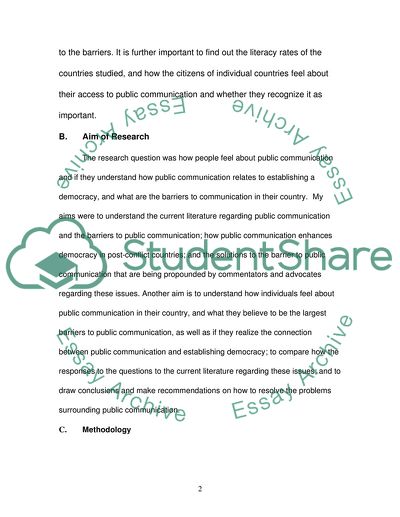Cite this document
(Public Communication and Establishing Democracy Dissertation, n.d.)
Public Communication and Establishing Democracy Dissertation. Retrieved from https://studentshare.org/journalism-communication/1739586-role-of-public-communication-in-promoting-democracy-in-post-conflict-countries
Public Communication and Establishing Democracy Dissertation. Retrieved from https://studentshare.org/journalism-communication/1739586-role-of-public-communication-in-promoting-democracy-in-post-conflict-countries
(Public Communication and Establishing Democracy Dissertation)
Public Communication and Establishing Democracy Dissertation. https://studentshare.org/journalism-communication/1739586-role-of-public-communication-in-promoting-democracy-in-post-conflict-countries.
Public Communication and Establishing Democracy Dissertation. https://studentshare.org/journalism-communication/1739586-role-of-public-communication-in-promoting-democracy-in-post-conflict-countries.
“Public Communication and Establishing Democracy Dissertation”, n.d. https://studentshare.org/journalism-communication/1739586-role-of-public-communication-in-promoting-democracy-in-post-conflict-countries.


